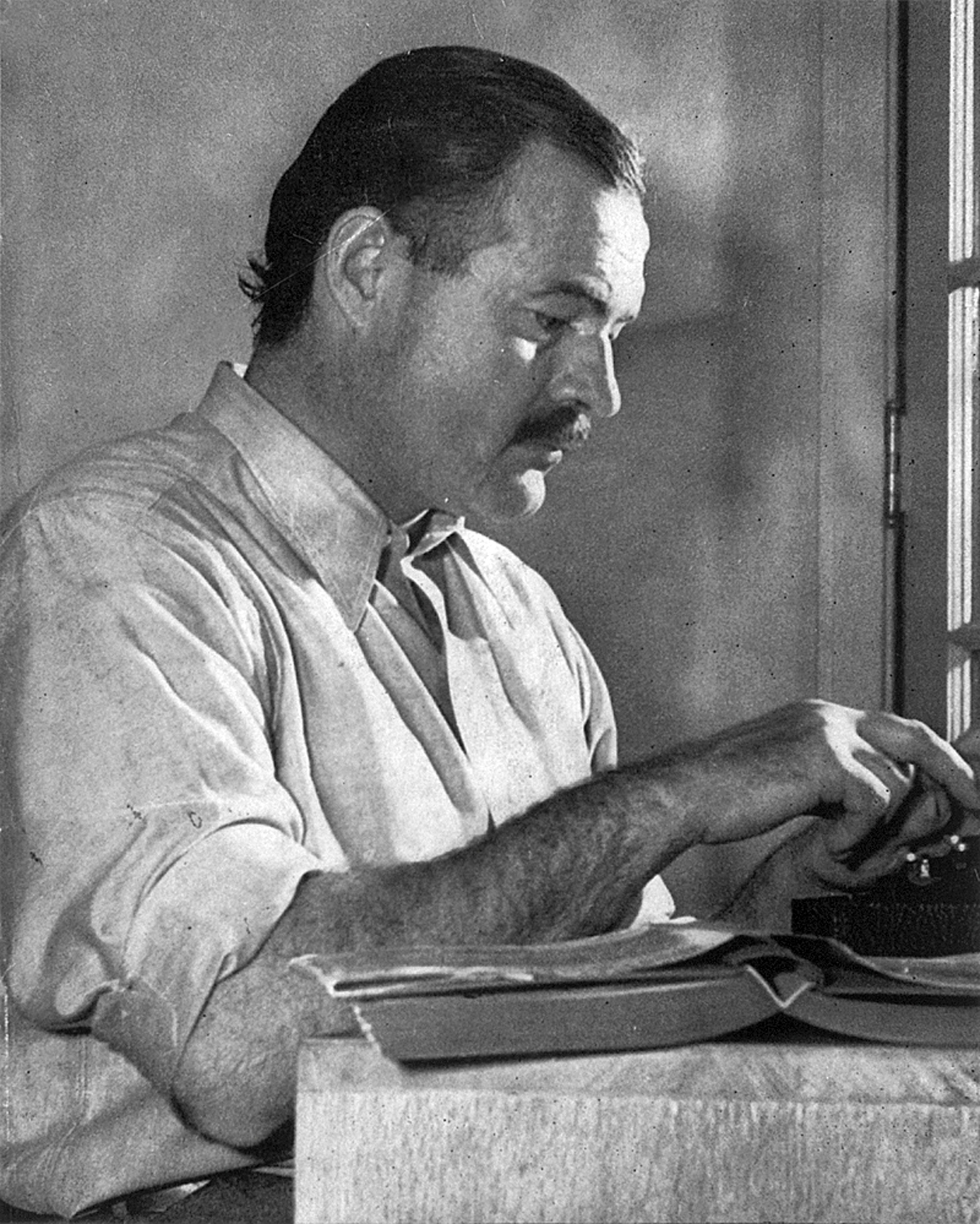Ernest Hemingway citations célèbres
Ernest Hemingway Citations
Le viel homme et la mer, 1952
“La mort est un remède souverain à toutes les infortunes.”
Mort dans l'après-midi, 1938
“Ça m'empêchera pas de le tuer, dit-il; tout superbe et formidable qu'il soit.”
Le viel homme et la mer, 1952
Le viel homme et la mer, 1952
“Dans tous les arts, le plaisir croît avec la connaissance que l'on a d'eux.”
Mort dans l'après-midi, 1938
Ernest Hemingway: Citations en anglais
“I wanted to try this new drink: That's all we do, isn't it - look at things and try new drinks?”
Source: The Complete Short Stories
“Today is only one day in all the days that will ever be.”
Source: For Whom the Bell Tolls
“Be patient, hand," he said. "I do this for you.”
Source: The Old Man and the Sea
“I've been in love (truly) with five women, the Spanish Republic and the 4th Infantry Division.”
Letter to http://www.telegraph.co.uk/news/worldnews/1547504/Hemingway-and-Dietrich-letters.html?service=print Marlene Dietrich (1 July 1930)
“You never understand anybody that loves you.”
Pt. 3: At Sea, Section 21 (the last sentence of the novel)
Islands in the Stream (1970)
Introduction to Treasury of the Free World (1946)
Paris Review interview (1958)
Introduction to Treasury of the Free World (1946)
“That tomorrow should come and that I should be there.”
For Whom the Bell Tolls (1940)
Letter to Esquire editor Arnold Gingrich (11 April 1935); published in Ernest Hemingway: Selected Letters 1917–1961 (1981) edited by Carlos Baker
“You're beautiful, like a May fly.”
Statement to his future wife Mary Welsh, recalled in her obituaries (26 November 1986)
Letter to F. Scott Fitzgerald (13 September 1929); published in Ernest Hemingway: Selected Letters 1917–1961 (1981) edited by Carlos Baker
“Everybody is friends when things are bad enough.”
Pt. 3: At Sea, Section 17
Islands in the Stream (1970)
"The Snows of Kilimanjaro," first published in Esquire (August 1936); later published in The Fifth Column and the First Forty-Nine Stories (1938). Originally in Esquire "Julian" was named as F. Scott Fitzgerald, who, in "The Rich Boy" (1926) had written: "Let me tell you about the very rich. They are different from you and me. They possess and enjoy early, and it does something to them, makes them soft where we are hard, and cynical where we are trustful, in a way that, unless you were born rich, it is very difficult to understand..." Fitzgerald responded to this in a letter (August 1936) to Hemingway saying: "Riches have never fascinated me, unless combined with the greatest charm or distinction."
As quoted in The New York Times Book Review (7 November 1954)
